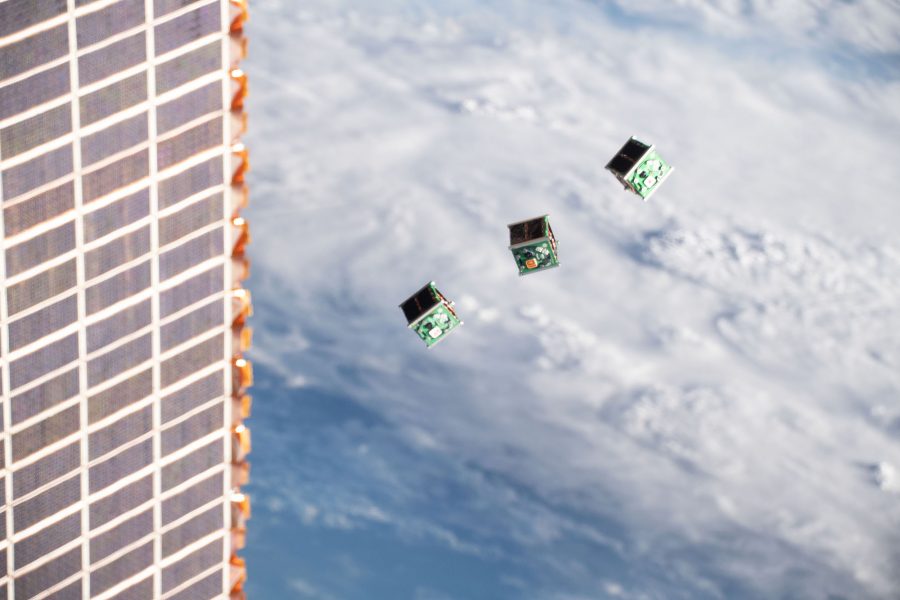It is “only a matter of time” before cybercriminals and bad actors start launching attacks on commercial space assets, the deputy commander of U.S. Space Command warned Aug. 9.
Space Force Lt. Gen. John E. Shaw, speaking at the virtual Small Satellite Conference, predicted that as commercial space becomes an increasingly active and crowded sector, there will be increased “interoperability” between assets in orbit so that satellites from different government agencies, private companies, and academic institutions can better connect and communicate.
But because the cyber and space realms are so intertwined—Shaw referred to them as “BFFs,” an initialism for best friends forever—the threats facing cyber will come for space as well.
“I hate to be a negative-looking predictor, but I think it’s only a matter of time before we see some of the same cyber challenges … that we’ve seen threaten really have some sort of manifestation in the space domain, whether it’s a ransomware attack on a commercial space system or some sort of infiltration of a control system of a commercial constellation,” Shaw said.
In response to those potential threats, SPACECOM boss Gen. James H. Dickinson has prioritized cybersecurity and resilience “for our basic capabilities, because they are so reliant on cyber technologies, and therefore may be vulnerable to those kinds of things,” Shaw said.
“Anyone who has been working with U.S. Space Command or U.S. Space Force or another part of the Department of Defense on space capabilities, you know we are continually asking, ‘How is this going to be cyber resilient? How are you building it in at the beginning, at the very beginning? How are you baking in cyber defense mechanisms into your capability that you’re building?’” Shaw said. “We can’t do future space capabilities without acknowledging the cutting edge of cyber, both the threats but also the defenses and the capabilities there that need to be woven in.”
Another key aspect for ensuring safety in space, Shaw predicted, will be the development of “rules of the road for behavior.” It’s been a common refrain among top defense officials—Dickinson called for international norms to be established in space Aug. 3 during the Navy League of the United States’ annual Sea-Air-Space Exposition, and last month, Defense Secretary Lloyd J. Austin III signed a memo pledging to have the Pentagon follow a framework of rules for behavior in space.
In particular, though, Shaw focused on the issue of space traffic management. At the moment, the Defense Department is responsible for tracking thousands of satellites and pieces of debris in orbit. It has long planned to transfer that duty to the Department of Commerce, but the switch has been slow, and while Shaw said he believes it is “on the brink of happening,” it is far from complete.
“I think we will get there—it’s just a matter of how and when and getting the resources lined up in organizations,” Shaw said. “We’ve actually been working with the Department of Commerce for a number of years now on potentially doing just that. I think we just have to hit that inflection point.”
The development of norms and rules in the commercial sector, Shaw said, will be welcomed by institutions.
“Ninety-eight percent or more of people operating in space are going to want to buy into that because it lowers the risk of the challenges for their venture,” Shaw said.
